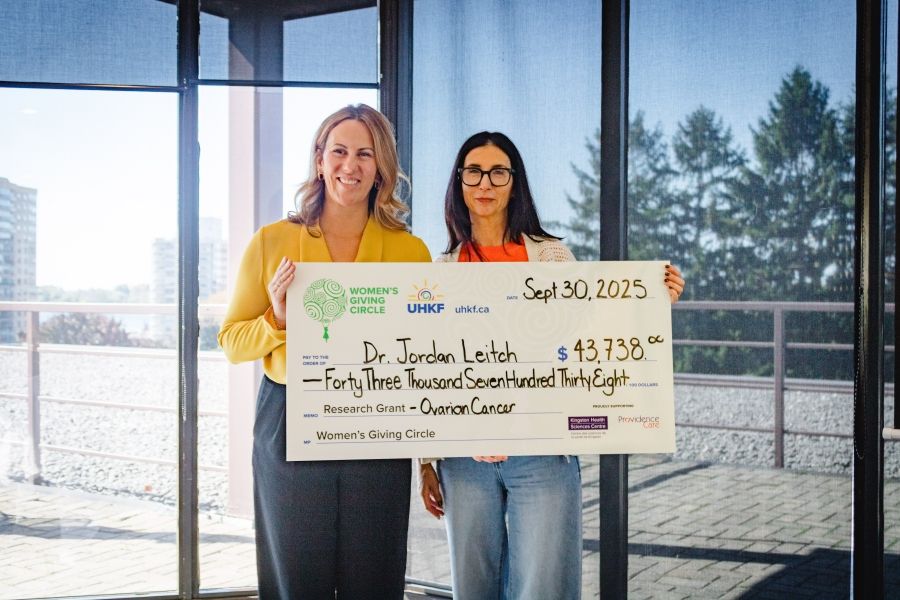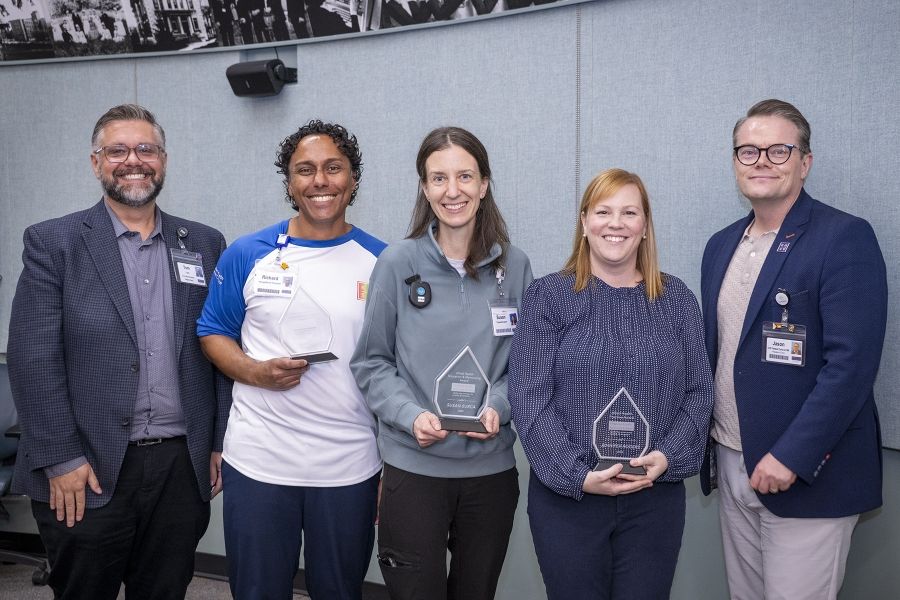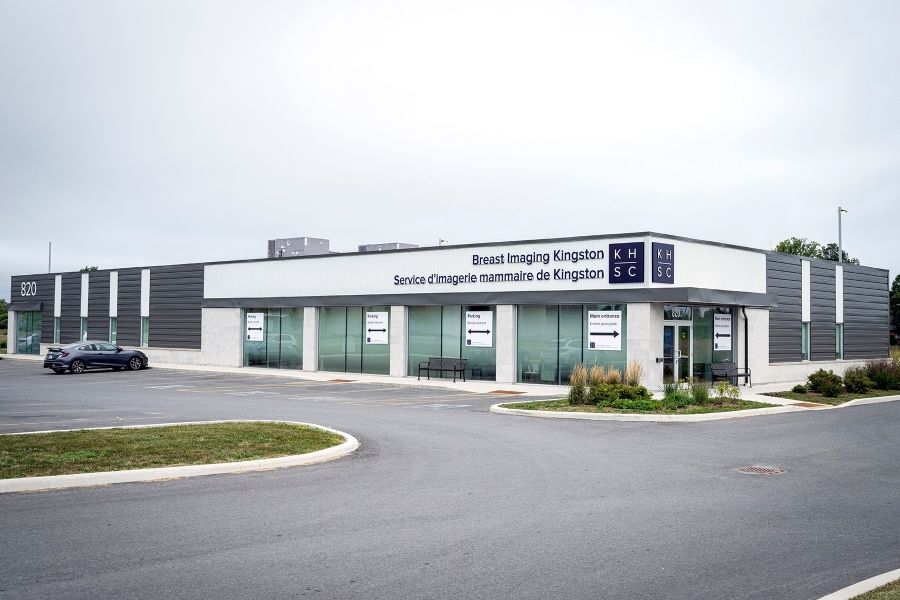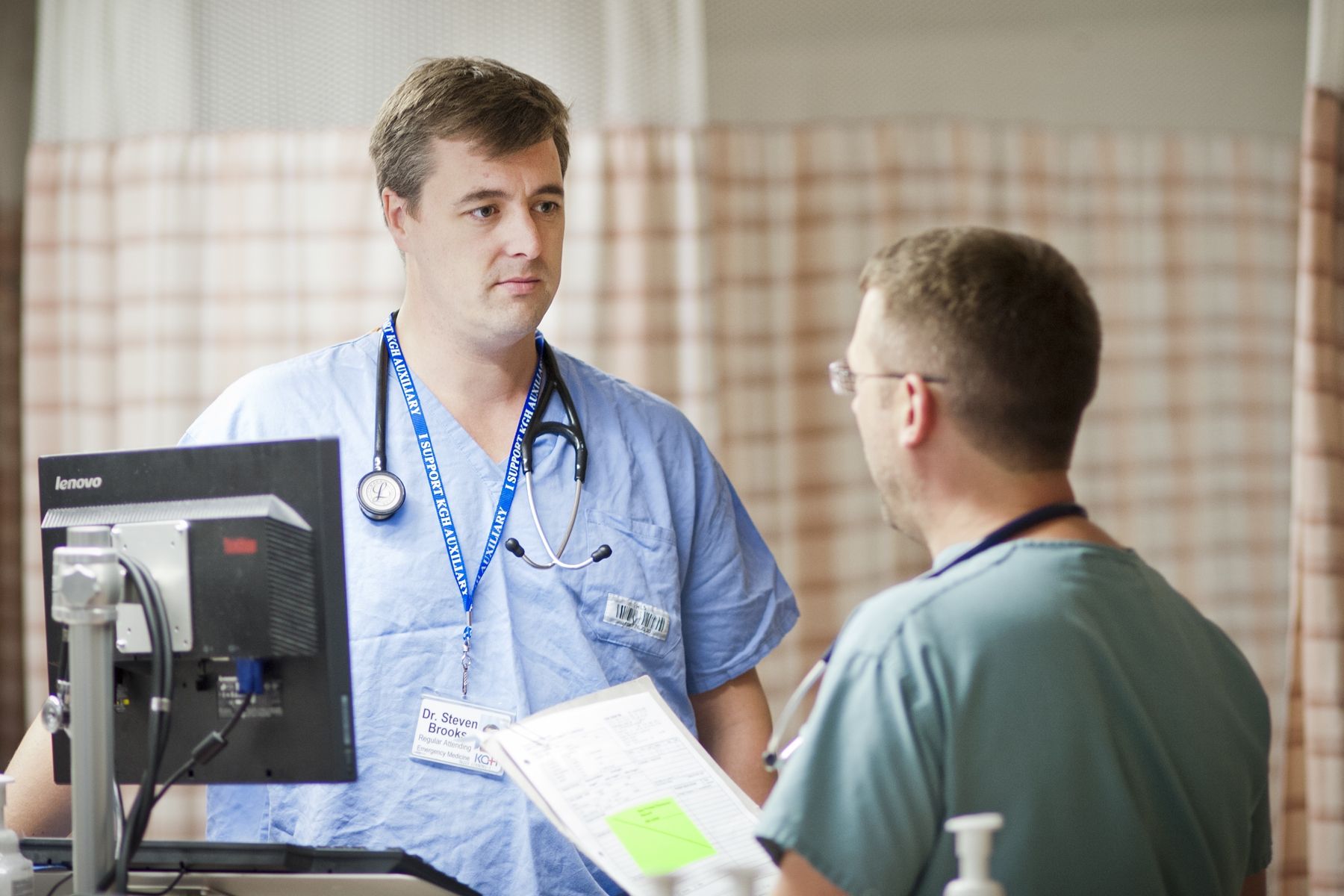
These are some challenging times for research programs the world over. Thanks to the gloomy global economy, clinical trials are down and new funding is hard to come by.
But here at Kingston General Hospital, our research program keeps on growing, and in more ways than one. We've recently attracted some new clinician scientists and we are about to significantly increase the amount of space we dedicate to clinical research.
“We are now in the process of converting the inpatient unit on Connell 4 into a new Clinical Investigation Unit,” says Vice President of Research Dr. Roger Deeley. “It's going to be a multi-user facility that will help us deliver on our goal of generating more patient-oriented research.”
The new unit is being designed so researchers from different areas will be able to meet with study subjects in a laboratory setting.
“I think this unit is going to be game changing for us,” says Deeley. “It's going to allow us to take all the excellent pre-clinical research going on here and take it to the next level by applying it to studies involving patients or volunteers subjects.”
An example of a research program that will benefit right away is the work being done on the bleeding disorders hemophilia and von Willebrand disease by Drs. David Lillicrap and Paula James.
“They are well advanced in pre-clinical trials. But as it stands now, to take the results of their research into a clinical setting they would have to do it at another institution,” says Deeley. “Another example would be the work being carried out by our Gastrointestinal Diseases Research Unit on potential treatments for drug-resistant C. difficile.”
The new unit will be just over 8,000 square feet.
But it's not just the new space that's pumping up our research program. Four new investigators have recently been hired as part of the first-ever clinician scientist recruitment program in partnership with the Faculty of Health Sciences at Queen's and the Southeastern Ontario Academic Medical Association (SEAMO).
The new researchers will have 50 to 75 per cent of their time protected for research.
Dr. Steven Brooks is one of the new hires. His expertise is in resuscitation and on finding ways to help people in the community effectively carry out CPR and use automated external defibrillators.
“There are unique opportunities for my area of research here at KGH and Queen's,” says Brooks. “The SEAMO program will allow me to focus on my research agenda and on helping build a world class resuscitation research program here.”
Along with Brooks, KGH and Queen's are also welcoming Dr. David Berman in pathology and molecular medicine, Dr. Ron Levy in neurosurgery and Dr. J. Alberto Neder, a respirologist coming from Brazil.
“We've been very fortunate in the calibre of people we've recruited and we hope to bring more clinician scientists on board under this program in near future,” says Deeley.
As for externally funded clinical trails, Deeley says KGH has been meeting our targets and we may even see an upswing in the near future, particularly in the area of allergy.
“As part of the KGH 2015 strategy, we set out to deliberately grow our capacity to carry out patient-oriented research and we're seeing a strong research culture taking root here,” says Deeley. “The pieces are all falling into place to ensure we become even more competitive on the global stage.”
Gallery
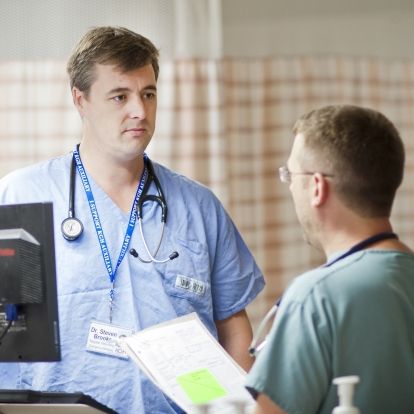
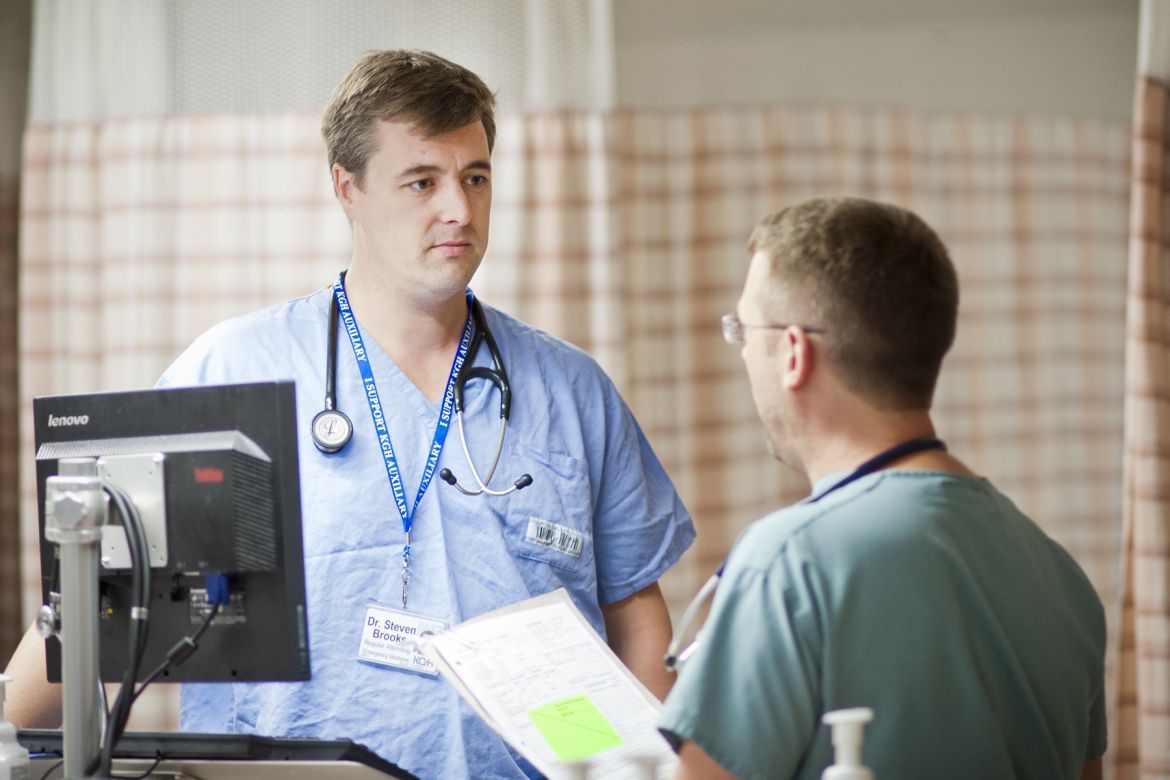
Dr. Steven Brooks talking to a colleague in the Emergency Department at KGH.

